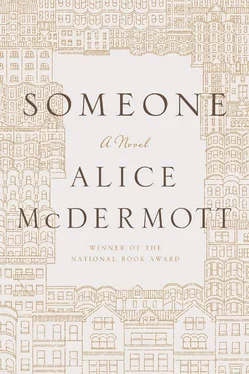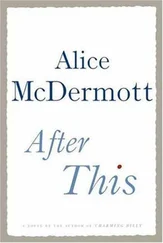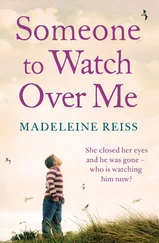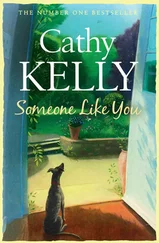There was tea, with a slice of plain cake, while my mother, with one of his schoolbooks in her lap, put my brother through his paces: catechism questions, Latin declensions, history’s dates and names. He answered all without hesitation, breaking off pieces of the cake only after he had finished a round. And then, with a jagged line of cake still left on his plate and half his milky tea still in his cup, he pushed back his chair and walked slowly to the far end of the table.
My father, at the opposite end, moved his own cup aside and leaned forward. I could see the reflection of his pale throat and chin in the table’s dark wood, like a face just beginning to appear in a still pool of black water. Or disappear. “What will we have tonight?” he said.
My brother ran his hands over his thick hair and then rested them both on the back of the chair that was before him. He lifted his eyes to the wall just above my father’s head. He was a handsome boy with narrow shoulders and fair hair and large brown eyes. He flushed easily. “ ‘The Seven Ages of Man,’ “ he said clearly, gripping the chair. “By William Shakespeare.”
He began. As Gabe recited, I watched my father vaguely shape his mouth around the words, unconsciously moving his lips in much the same way he had done when I turned the sugar cube on my tongue.
My mother kept her head bowed, studying her red hands in her lap while the poem wound on, looking like a woman at prayer, or hunched beside a radio.
I lowered my chin toward the table, raised my cup only briefly from its saucer. What tea was left was growing cold, but that was how I liked it. I took a small sip and then replaced the cup with more noise than was polite, which would have earned me a sharp look from my mother had the sound not coincided with the end of the poem and my parents’ gentle applause.
“Some Shelley,” my father said.
My friend Gerty Hanson was made to say the Rosary with her family every night after dinner, her mother and father and all three of her big brothers kneeling on the floor around the parents’ bed. I had joined them once or twice, a ritual no less tedious than this, although Gerty, at least, was given the chance to lead the prayer every fifth decade, the chance to speak out into an attentive silence—whereas here I was meant only to listen to my brother, who had won the elocution medal at his school for what seemed to me more years than I could number.
Gabe raised his eyes and directed his voice to the simple chandelier above our heads. It was new to my ears, his voice, both deeper and somehow less certain than it had been just days ago. I watched the protruding Adam’s apple bob in his pale throat. “ ‘Ode to the West Wind,’ “ he said. “By Percy Blithe Shelley.”
My parents might have seen the priest in him then, the way he stood at the end of the table, offered up the lovely words.
I saw only, in my mind’s eye, a picture book illustration I had found somewhere, of a cruel face in the clouds, bloated cheeks and pursed lips that blew down upon the huddled figure of a man in a great dark overcoat.
“ ‘Oh, hear!’ “ my brother said, reciting, and then hesitated for a moment before he abruptly lifted a palm to the ceiling—a gesture he might have been instructed to make, at school, perhaps, although it did not suit him or his steady voice.
Without raising my chin, I looked around. Gabe had left half the cake on his plate. I knew he would eat it in a single, triumphant bite when he returned to his chair. My father’s slice was already gone. As was my mother’s. I looked at my own plate again, knowing full well I hadn’t left a crumb, and was surprised to discover there, in its center, another white sugar cube. I looked to my father, who only shifted his eyes briefly and briefly smiled. I looked to my mother, who was still studying the ruddy hands cupped in her lap, the thin gold band of her wedding ring. I snatched up the cube of sugar and quickly dropped it into the cooling dregs of my tea. My father whispered the last words of the poem as my brother recited them, and then, once more, my parents were quietly applauding.
My brother said, “ ‘Ozymandias,’ “ as I lifted my teacup again. I felt my mother’s finger against my thigh, a quick poke to remind me to listen.
I listened, my eye on the lovely, tea-soaked dregs of sugar at the bottom of the china cup. I imagined it was the very same sweet, silver sand mentioned in the poem, desert sand, sand of Syria and Mount Lebanon. I watched with one eye squinted as the lovely stuff moved slowly across the ivory light, advanced sluggishly toward my tongue, and then, when it was too slow, the tip of my finger. I was thinking of a baby wrapped in sparkling clothes, being pushed slowly in a white carriage, slowly through the city of light, toward Brooklyn, when I felt the sting of a slap against the back of my head and then its quick echo of pain. I pulled my finger from the cup. My mother hadn’t raised her eyes from her lap.
Gabe finished the poem and returned to his place at the table to drink down the cold tea and devour whole the bit of cake, his face flushed with his triumph. Patiently, my mother turned to me to ask what would happen if a teacup shattered while my fingers were inside it.
Some neighbor or faceless relation was named, a silly girl who’d “sliced herself good” with her hand inside a glass while she was washing up. A suggested image of soapy dishwater darkened with blood following me to the bath, where I watched my mother’s blurred red hand as it tested the seamless stream of steaming water.
I deployed all my excuses in a rush: the water was too hot, the house too cold, I’d had a bath last week, I had a stomachache, I was sleepy. But my mother had a grip on my arm, and my thin legs were all obedience. They raised themselves against my will, up over the cold rim of the high tub and into the steaming water, where the pain from the heat became a chill in my spine and my thin body—bright red to my calves but pale white, nearly blue, through my chest and my arms—became no more than a scrap of cloth, a scrap of cloth caught and shaken and snapped by a sudden wind. I wanted to weep. I wanted to be sick. I saw for a terrible moment that my body was a scrap of cloth, that my bones were no more than porcelain, as were my rattling teeth and the china skull that contained them. I saw how a hoop of light, the water’s shifting reflection, swung up to the top of the tile wall, and then swung down again, carrying me with it, nauseous and full of despair. I sat. The warm water covered my arms and touched my chin. My mother let go of my forearm, although the imprint of her grip lingered.
There, she said. There now. After all your fussing. You just have to get used to it.
In those days I still slept in the crib that had been my brother’s, in a corner of the small room I shared with him. A peeling lamb painted on the headboard, a blurred line of grass and meadow flowers at the foot. Low light. Prayers. My parents’ dry lips to my forehead and some single, barely whispered word at the end of the day that told me I was cherished above all things by these indistinct and warm-breathed shadows, leaning over me at the end of the day.
Gabe came in sometime later. Another blur of darkness and light—dark clothes and fair hair—coming in to take the pajamas out from under his pillow. When he returned, he was a brighter blur because he was dressed in them. Through the bars of the crib, I watched him kneel to say his prayers and then pull down his covers and climb into bed. He slept on his back, a wrist over his eyes, like another picture book illustration I had seen, of a laborer resting in a field. The light stayed on most of the night, and this gesture, his wrist thrown over his eyes, was his silent accommodation to my fear of the dark.
Читать дальше












